FAST BOILER SERVICE ON LONG ISLAND
-
Transparent, Upfront Pricing
-
24-Hour Service
-
Emergency Service Available
-
Professional, Certified Technicians
-
Best Price Guarantee
They installed a new boiler at my home. After requesting quotes for a replacement from several companies, All Island Comfort was not only the best price but they could also do the job quickly. They completed the work on time and in budget.
~ Maria N.
Outstanding service! They responded to my call over the weekend and were able to get a hard-to-find part, and get my boiler up and running quickly. The tech showed up on time and was very courteous and professional.
~ Fred C.
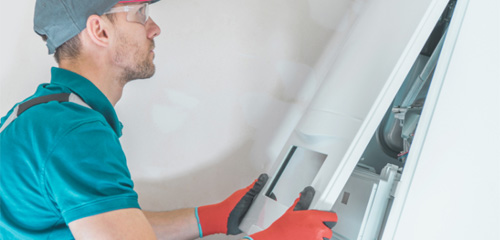
BOILER INSTALLATION
Professional boiler installation service ensuring optimal efficiency and safety. Expert technicians, fast turnaround, and guaranteed satisfaction.
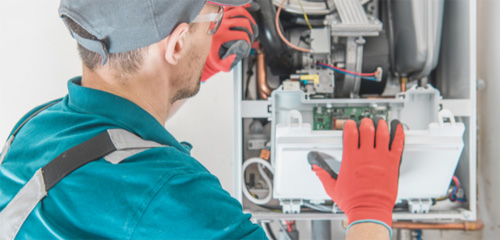
BOILER REPLACEMENT
Expert boiler replacement for peak performance. Skilled technicians, affordable pricing, and enduring reliability. Upgrade today!
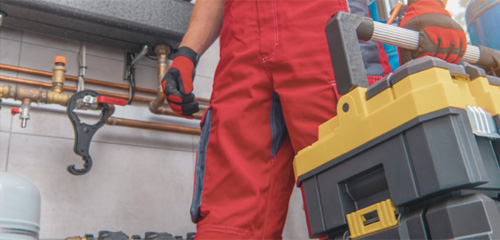
BOILER REPAIR
Fast and efficient boiler repair service, with on-time arrival and low pricing. Your comfort is our priority. Call for an appointment today!
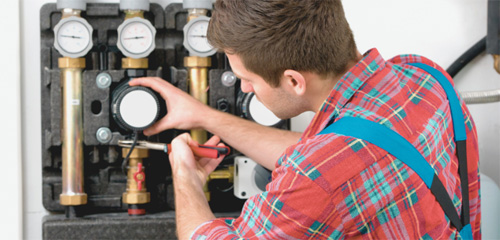
24-HOUR BOILER SERVICE
24/7 boiler repair service: immediate response, expert technicians. Ensuring warmth and safety around the clock. We’re here when you need us most.
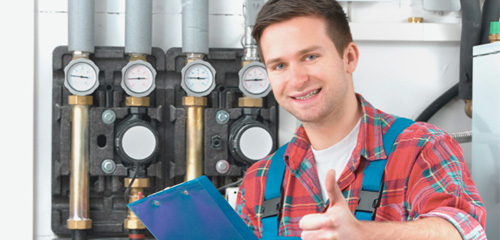
SAME-DAY APPOINTMENTS
Same-day boiler repair: rapid response, expert care. Restoring your comfort without delay. We provide timely, friendly service.
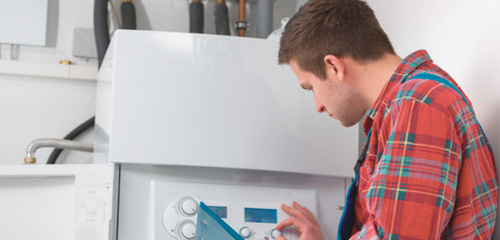
FREE ESTIMATES
Get free estimates now! Transparent pricing, no hidden costs. Discover affordable solutions tailored to your needs. Commitment-free consultation.

OUR PRICE MATCH GUARANTEE
We guarantee the best pricing on boiler installation on Long Island. If you find a better price, we’ll beat it by $100!
GET A FREE ESTIMATE FOR YOUR BOILER PROJECT
FREQUENTLY ASKED QUESTIONS
The average cost to install a new boiler can vary based on several factors, including the type of boiler, its capacity, and the complexity of the installation. The average cost for a new boiler installation ranges from $3,500 to $7,800. High-efficiency models can cost between $5,000 to $9,000. It’s essential to note that these prices can fluctuate based on the specific requirements of the installation, and any additional features or services you might need. Always get multiple quotes and consult with professionals before making a decision. We offer free, no-obligation estimates for boiler installation.
The cost of a boiler for a 2000 sq ft house can vary based on several factors, including the type of boiler, its efficiency, the brand, and installation costs. The average cost to install a boiler ranges from $3,500 to $7,800. However, high-efficiency models can cost between $5,000 and $10,000. This includes both the unit and installation. It’s essential to get multiple quotes from different suppliers and consider the long-term operating costs when making a decision. It would be best to consult with a local HVAC professional like All Island Comfort to get a more accurate estimate for your specific needs and location.
Here are some key points to consider when deciding whether to replace a 20-year-old boiler:
- Age of the Boiler: While condensing boilers have not been on the market for a very long time and their longevity is hard to predict, with proper maintenance, they are expected to last at least 15 years or longer. Cast iron boilers, on the other hand, should be considered for replacement if they have been operating for more than 20 or 30 years. Some of these boilers can last even up to 50 years or longer, but their efficiencies are much lower than today’s cast iron boilers.
- Energy Expenditures: If you notice a gradual increase in energy bills, it might be due to the age of the boiler and the increasing costs of its maintenance. A boiler that requires constant servicing has likely become less efficient.
- Increased Frequency of Failures: Regular breakdowns or malfunctions are a clear indicator that the boiler may need a major overhaul or replacement.
- Discoloration: Yellow flames on gas burners and black soot on oil boilers indicate improper fuel burning, which can create carbon monoxide. It’s crucial to have carbon monoxide detectors installed in such cases.
- Leaks: A boiler that leaks or requires additional make-up water might be nearing the end of its lifecycle.
- Comfort Issues: If some rooms in your house are too hot or too cold or if there are varying temperatures throughout the day, the boiler and its controls might no longer be effective.
- Quality: If your boiler isn’t of a reputable brand, it might be time to upgrade to a more reliable and efficient model.
In conclusion, even if a boiler isn’t immediately failing, upgrading to a newer system can offer significant benefits, including energy savings, improved comfort, and increased property value. If your boiler is around 20 years old, it’s a good idea to consider replacing it, especially if you’re experiencing any of the issues mentioned above. We can provide you with a free, no-obligation estimate for your boiler replacement.
The life expectancy of a boiler can vary based on its type, maintenance, and usage. Here are some key points regarding the lifespan of a boiler:
- Average Lifespan: The average lifespan of many boilers is around 15 years. If your boiler is older than this, then you may want to consider upgrading your system.
- Maintenance and Efficiency: It’s common for boilers to become increasingly inefficient as they get older. This inefficiency often manifests as a gradual rise in heating costs over the years. Many homeowners might attribute this to rising fuel prices, but it can also be a sign that the boiler’s lifespan is nearing its end.
- Determining Boiler Age: To identify how old your boiler is, you can typically find this information on the boiler’s rating plate. This plate will often list the year of manufacture and the manufacturer. If you can’t locate this information, you can contact the manufacturer with the boiler’s serial number, and they should be able to tell you the year it was built.
- When to Replace: It’s smart to act proactively when considering the lifetime of your boiler. After the 15-year mark, it’s a good idea to think about upgrading to a new system, especially before the peak winter months when heating is crucial. Modern boilers are typically more efficient and can lead to savings on fuel and reduced emissions.
- Regulations: In some areas, there are laws that restrict the use of certain boilers when they reach a specific age. For example, in places like Rhode Island, there are regulations that place a maximum age limit of 20 or 30 years on certain boilers, depending on their pressure rating and type of construction. However, many old boilers become obsolete primarily due to their poor efficiency and emissions.
According to a Consumer Reports article, they have analyzed data on 13 different brands of boilers. Some of the brands mentioned include Weil-McLain, Burnham, Buderus, and Williamson.
Here are some of the most popular boiler brands:
- Viessmann: Known for its high-quality and efficient boilers, Viessmann is a leading international manufacturer of heating systems.
- Worcester Bosch: A top choice in many countries, Worcester Bosch offers a wide range of boilers and has a strong reputation for reliability and performance.
- Vaillant: With a history spanning over 140 years, Vaillant is a trusted name in the heating industry, offering a variety of boilers to suit different needs.
- Buderus: A brand of Bosch Thermotechnik, Buderus boilers are known for their efficiency and durability.
- Weil-McLain: A leading North American manufacturer, Weil-McLain offers a broad spectrum of gas-fired, oil-fired, and combination oil/gas boilers.
- Burnham: Another well-regarded brand in the USA, Burnham offers a range of high-efficiency boilers.
- Navien: Known for its condensing technology, Navien offers energy-efficient boilers with advanced features.
- Lennox: A popular brand in the HVAC industry, Lennox also offers a range of boilers known for their reliability.
- Slant/Fin: With a reputation for producing quality boilers, Slant/Fin is a trusted name in the heating industry.
- Lochinvar: Offering a wide range of high-efficiency boilers, Lochinvar is known for its innovative solutions and advanced technology.
It’s essential to note that the best boiler brand for you will depend on your specific needs, budget, and preferences. When considering a boiler, it’s a good idea to consult with professionals, read reviews, and compare features and prices to make an informed decision.
The cost to replace a boiler system can vary widely based on a variety of factors including the type and size of boiler, the complexity of the installation, and geographic location. Here are some rough estimates as of my last training cut-off in 2021:
- Standard Boiler Replacement:
- The average cost for a standard efficiency boiler replacement can range from about $3,500 to $8,000, including installation.
- High-Efficiency Boiler Replacement:
- High-efficiency boilers, which are more energy-efficient, typically cost between $6,000 and $15,000, including installation.
- Complex Installations:
- If the installation requires significant alterations to your home or the heating system, the costs could be higher. This could include things like modifying the flue, upgrading gas lines, or adding new radiators or convectors.
Installation costs can also be affected by:
- Local labor rates: Labor costs can vary significantly from one region to another.
- Existing System Conditions: The condition and configuration of the existing heating system can impact the ease and cost of the new boiler installation.
- Permitting and Inspection Fees: Local building departments typically require permits and inspections for a boiler replacement, and the fees for these can vary.
- Brand and Model: Different brands and models of boilers come with different price tags.
The decision between replacing or repairing an old boiler comes down to several factors including the age, efficiency, and condition of your existing boiler, as well as the costs involved. Here are some considerations that might help you in making an informed decision:
- Age of Your Boiler:
- If your boiler is over 15 years old, it may be nearing the end of its lifespan. Newer models are likely to be more efficient and may save you money on energy bills in the long run.
- Cost of Repairs:
- If the cost of repairing your old boiler is 50% or more of the cost of a new boiler, it might be more economical to replace it. It’s a good idea to get several quotes for both repairs and replacement to compare.
- Frequency of Repairs:
- If your boiler has needed frequent repairs in the past, it might be more cost-effective to replace it rather than continuing to pay for ongoing repairs.
- Energy Efficiency:
- Modern boilers are generally more energy-efficient than older models, which could result in lower energy bills. The savings on your energy bills might offset the cost of the new boiler over time.
- Availability of Parts:
- It might become difficult and expensive to find replacement parts for older boilers. If parts are hard to come by or are discontinued, replacement may be the more practical option.
- Warranty:
- New boilers usually come with warranties, which can provide peace of mind and potentially save on repair costs for a certain period.
- Boiler Performance:
- If your current boiler is not heating your home adequately or is producing strange noises or odors, it might be time for a replacement.
- Environmental Consideration:
- Newer models are likely to be more eco-friendly, with lower emissions and better efficiency which is both good for the environment and possibly your energy bills.
It could be worth getting a new boiler if your current one is old, inefficient, frequently requiring repairs, or failing to adequately heat your home. A new boiler can provide better energy efficiency, lower energy bills, improved heating performance, and a warranty for peace of mind. It’s advisable to have a professional assess your current boiler and provide personalized advice based on your situation.
A 40-year-old boiler is quite old, and there could be several safety and efficiency concerns associated with its continued use. Some potential issues include:
- Gas Leaks: Old boilers, especially those that haven’t been well-maintained, are at a higher risk for gas leaks, which can be very dangerous.
- Carbon Monoxide Poisoning: As boilers age, they may not burn fuel as efficiently, increasing the risk of carbon monoxide (CO) production, which can be lethal if not properly vented.
- Inadequate Venting: Venting systems may deteriorate over time, and if they fail, combustion gases could enter your home.
- Outdated Safety Features: New boilers come with modern safety features that might not be present on an older boiler.
- Pressure Issues: Older boilers can have problems with maintaining the correct pressure, which could pose a risk of explosion.
It’s highly advisable to have a professional heating technician inspect a boiler of this age to assess its condition, safety, and efficiency. If it hasn’t been regularly serviced, there’s a higher likelihood that it could pose a safety risk. Replacing an outdated boiler with a modern, efficient unit equipped with current safety features could be a safer and more economical choice in the long term.
The time it takes to install a new boiler can vary widely depending on several factors such as the complexity of the installation, the type of boiler, and whether any additional work such as updating piping or relocating the boiler is required. Here are some general timelines:
- Straight Swap:
- If the new boiler is being installed in the same location as the old one, and no additional work is needed, the installation could be completed within 1 to 2 days.
- Complex Installation:
- If the boiler is being moved to a new location, or if there’s additional work like upgrading gas lines or modifying water piping, the installation could take 2 to 5 days or more.
- Combination (Combi) Boiler Installation:
- Installing a combi boiler might take 2 to 3 days. This type of boiler might require modifications to the plumbing system due to its unique demand for both central heating and hot water supply.
- System or Regular Boiler Installation:
- System or regular boiler installations may take 2 to 3 days or more, especially if a hot water tank or cylinder is being installed or replaced.
- New Boiler System:
- If you are switching from one type of heating system to another, such as from a furnace to a boiler or installing a boiler in a new construction, it could take a week or more depending on the complexity of the project.
Before the installation begins, it’s a good idea to discuss the timeline with your plumber or installation technician to have a clear understanding of how long the project is expected to take. They can provide a more accurate estimate based on the specifics of your installation.
- Compatibility:
- If the new boiler has different connection sizes or types compared to your old boiler, modifications or replacements to the existing piping may be necessary.
- Upgrades:
- If you’re upgrading to a higher capacity or more efficient boiler, the existing piping may need to be replaced or modified to handle the new boiler’s requirements.
- Local Codes and Regulations:
- There may be local building codes or regulations that require certain types of piping or a particular configuration that necessitates updating the piping.
- System Conversion:
- If you’re converting from one type of heating system to another (e.g., from a regular boiler to a combi boiler), new piping might be required to accommodate the new system.
- Material of Existing Pipes:
- Some older homes might have piping materials that are now considered outdated or unsafe. In such cases, updating the piping to modern, safe materials is necessary.
- Improving Efficiency:
- Newer, properly sized, and insulated pipes can contribute to the overall efficiency and performance of your heating system.
It’s a good practice to have a professional heating technician evaluate your existing piping system and provide recommendations based on the specific requirements of your new boiler and local regulations. This evaluation can also help identify any potential issues that could affect the performance and safety of your heating system.
GET THE BEST DEAL ON BOILER INSTALLATION AND REPLACEMENT LONG ISLAND
If you need boiler installation, boiler replacement, service, or repair on Long Island, it is important to hire a qualified professional. Not only may you need a permit and inspection for the installation or any work done on your HVAC system, but boiler services require highly specialized knowledge in heating, venting, and plumbing. Find a company who can provide YOU with reliable boiler services and expertise. Boilers are typically very efficient, durable machines, but just like your car, they should receive regular maintenance and may need repair or replacement. This should be done by a licensed professional to provide the best performance. There are many makes and models on the market, so you want to be sure that your professional is extremely knowledgeable about the product that they are using. We will perform your tune-up, repair and/or installation correctly the first time. For a free quote on Boiler Installation And Replacement Long Island, contact us today! Check our service area here – we serve all of Suffolk and Nassau counties NY.
Boiler replacement cost and the cost of a new boiler
Like many things, a boiler is something you can take for granted until it breaks down. Thankfully, boilers are extremely durable and there are often warning signs that you need to service your boiler. These are some reasons why it might be a good idea to contact a boiler professional:
- Boilers degrade in reliability over time, and require regular maintenance and repair. Parts for older boilers can be harder to find, making repairs even more costly. Therefore, it’s important to keep up with maintenance to prevent the need for repairs.
- Current high-efficiency models can be costlier up front, but can be up to 35% more efficient than their older counterparts, resulting in lower heating costs in the long term. An advanced system can provide cost savings in fuel costs in as little as two years to justify the additional cost.
- Boilers are safe appliances, but if an older boiler does not receive a fresh supply of combustion air, that could pose a health hazard. These risks can be reduced with a more advanced boiler.
If you don’t properly maintain your boiler, its performance will be reduced and your energy bills could go up due to wasted energy. Minor adjustments can save up to 10% on your bills, which can add up to hundreds of dollars per year.
You should check your safety valves and water gauge glass regularly. The safety valves alleviate pressure if all other systems fail. All steam and hot-water boilers have at least one valve. Additionally, if you do not properly clean and maintain the water gauge glass, it may display an inaccurate water level.
An annual boiler maintenance program can prevent problems by identifying them early on. This can reduce the possibility of costly repairs or the need for replacement. This should include checking the accuracy of the gauges, the pressure of your expansion tank, the safety devices, including pressure relief valves; pressure and temperature controls, low water-sensing devices, leaks in the fuel system, controls and proper operation, signs of overheating and exhaust leaks in the combustion system, zone balancing, uneven heating, and leaks in the heating system, quiet operation of the circulator pump, and cleanliness of the water in the system. To learn more about the cost of a new boiler, please read our boiler price guide.
It’s time to replace your boiler – how to choose the right boiler for your Long Island home
The central part of every radiated heating system is the boiler. They work by sending hot water or steam to the radiators which heat the home. There are many different kinds of boilers available on the market and there are various factors that you should consider when selecting the right boiler for your home. They can be more comfortable and efficient than hot air systems.
The first thing to determine is whether your home requires a hot water or steam application. You can do this yourself by checking your radiators. If you find a small air vent on the radiator, that could be an indicator that you need a steam system. Additionally, steam boilers have a small glass tube called a sight glass, which shows the level of water inside the boiler, on the side. Hot water boilers lack a sight glass, but you’ll find a pump or expansion tank nearby. An older system may not have a circulator pump and the expansion tank may be in the attic. If you’re unsure which type is needed for your home, a professional can easily check for you.
The next thing to determine is the fuel type, which include natural gas, liquid propane, fuel oil, or electric. Natural gas is the most common, especially in urban areas and will be what you use if you have gas plumbed from a utility main. Where natural gas is unavailable, propane and fuel oil are the most common options. Oil is particularly common in the northeastern states and eastern Canada. Both installations will have a tank on the property and periodic propane or fuel deliveries will be required several times per year. Electric boilers provide an option for small spaces, such as garages, where the other fuel sources are not an option. For a free quote on Boiler Installation And Replacement Long Island, contact us today.
The next consideration is the venting. The three main venting options are chimney venting, power venting (also known as direct exhaust), and direct venting (sealed combustion). The one you use will be determined by your home’s construction, existing boiler, and your desired efficiency.
Boiler efficiency ratings typically range from 80% to 96% and is measured in Annual Fuel Utilization Efficiency (AFUE). This is an estimate of the percentage of fuel converted to usable heat, which can help you determine operating costs of your boiler. True high-efficiency is achieved at 90% AFUE. boilers are more expensive upfront and require more specialize installation, but offer operating savings up to 30% and are better for the environment.
You should also consider condensing, which is the process of maximizing the amount of heat they deliver to your home. Another consideration is modulating and staging. Staging boilers have distinct levels of heat levels called stages. Modulating allows for any output between a defined minimum and maximum, giving you more control than staging and resulting in constant even heat. Despite modulating and condensing technologies, the most important consideration is that your boiler is sized correctly. If replacing a boiler that you’re happy with, you can replace with a boiler of the same size. If not, it’s important to get a professional to determine the proper size for you.
High-efficiency boiler prices
Installing high performance boilers can cost between $4,000 and 10,000, saving 10-20 percent. AFUE is the percentage of energy consumed by the heating unit to be used for the heating system. In the AFUE metric the boiler is 90+. Installation costs may vary depending on ventilation, hot water tanks & connections required. Throughout the aging process, every boiler loses its energy efficiency. Most of the efficient boiler systems are tankless while some require an attached hot water tank.
Condensing vs. Non-Condensing Boilers
A boiler can condensable or non-condensable. Traditional heating systems are non-condensable, meaning it wastes some energy by blowing out the exhaust fume. Condensing boiler captures the exhaust and uses the heat to make it more efficient and cheaper.
Boiler Installation Cost by House Size
The length of your boiler units determines the cost. The British thermal unit (BTU) is a standard boiler size that determines its size, but the size of your home may differ depending on where you live. Cost includes material and labor. Home in warmer climates can require smaller units compared to a home in warmer climate.
Boiler Repair vs. Replacement Costs
Boiler repairs typically cost $200 and $400, depending the problem. If your boiler requires repairs but otherwise remains reliable then hiring a heating technician is probably cheaper. But a new boiler may be more economical in the long term. If the repair estimate exceeds the cost for the typical boiler replacement (around $3100) you might not want to replace your old boiler.
Gas Vs. Oil-Fired Boilers
Gas and oil-fired boilers are both common heating solutions for homes, especially in regions with cold winters. They serve the same primary function: to heat water for space heating and, in some cases, domestic hot water. However, there are several differences between them. Here’s a breakdown of gas vs oil boilers.
Contact us today for a free, no obligation estimate!
OUR LONG ISLAND SERVICE AREA
SUFFOLK COUNTY, NY
Amityville, Aquebogue, Babylon, Bay Shore, Bayport, Bayville, Bellport, Blue Point, Bohemia, Brentwood, Brightwaters, Brookhaven, Calverton, Center Moriches, Centereach, Centerport, Central Islip, Commack, Copiague, Coram, Deer Park, Dix Hills, East Islip, East Moriches, East Northport, East Quogue, East Setauket, Eastport, Farmingville, Great River, Greenlawn, Hampton Bays, Hauppauge, Holbrook, Holtsville, Huntington, Huntington Station, Islandia, Islip, Islip Terrace, Kings Park, Lake Grove, Lake Ronkonkoma, Lindenhurst, Manorville, Mastic Beach, Mastic, Medford, Melville, Middle Island, Miller Place, Moriches, Mount Sinai, Nesconset, North Babylon, Northport, Oakdale, Patchogue, Port Jefferson, Port Jefferson Station, Quogue, Remsenburg, Ridge, Riverhead, Rocky Point, Ronkonkoma, Saint James, Sayville, Selden, Shirley, Shoreham, Smithtown, Sound Beach, Southampton, Speonk, Stony Brook, Upton, Wading River, West Babylon, West Islip, West Sayville, Westhampton Beach, Westhampton, Wyandanch, Yaphank
NASSAU COUNTY, NY
Atlantic Beach, Baldwin, Bayville, Bellmore, Bethpage, Brookville, Carle Place, Cedarhurst, Cold Spring Harbor, East Meadow, East Norwich, East Rockaway, Elmont, Farmingdale, Floral Park, Franklin Square, Freeport, Garden City, Garden City Park, Glen Cove, Glen Head, Glenwood Landing, Great Neck, Greenvale, Hempstead, Hewlett, Inwood, Island Park, Jericho, Kings Point, Laurel Hollow, Lawrence, Levittown, Lindenhurst, Lloyd Harbor, Locust Valley, Long Beach, Lynbrook, Malverne, Manhasset, Massapequa, Massapequa Park, Merrick, Mill Neck, Mineola, Muttontown, New Hyde Park, North Bellmore, North Hempstead, North Massapequa, North Merrick, Oceanside, Old Bethpage, Old Westbury, Oyster Bay, Plainview, Point Lookout, Port Washington, Rockville Centre, Roosevelt, Roslyn Heights, Roslyn, Sands Point, Sea Cliff, Seaford, Syosset, Uniondale, Valley Stream, Wantagh, West Hempstead, Westbury, Williston Park, Woodbury, Woodmere
